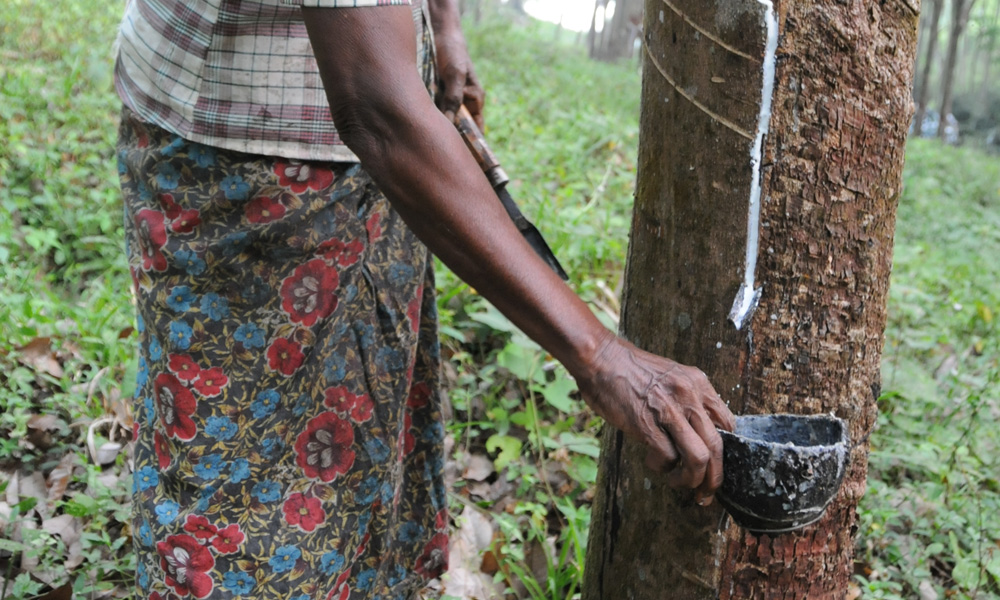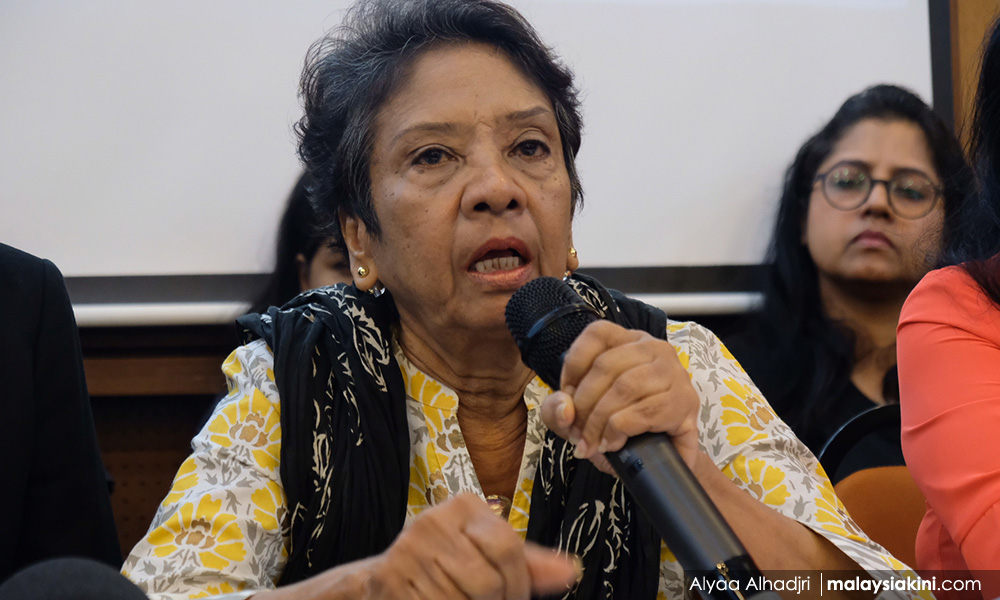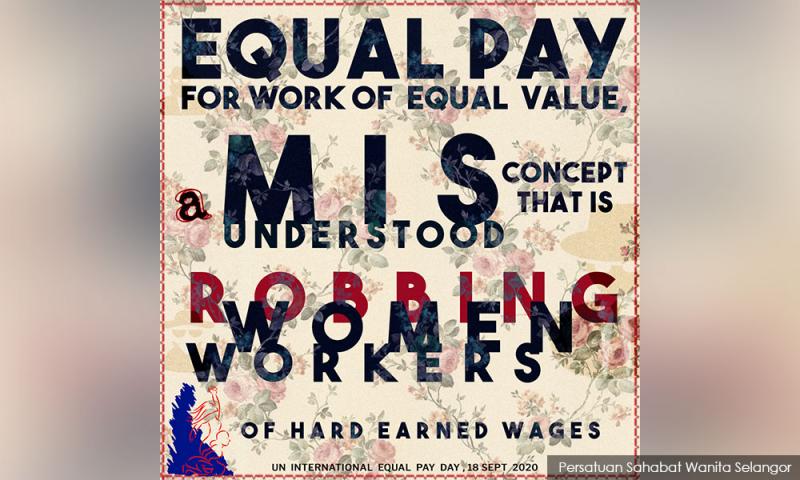LETTER | Women workers being robbed of hard-earned wages
LETTER | On March 8, 2019, the United States Women’s National Soccer Team (USWNT) marked International Women’s Day by filing a class-action suit against their employer, the United States Soccer Federation (USSF), alleging pay and employment condition differences.
In spite of the country’s Equal Pay Act 1963 (EPA) that prohibits gender-based wage discrimination in the United States, the women’s team would receive only US$99,000 while the men’s team would be paid a whopping US$263,320 for the 20 games each team would have played and win in one year.
Not too long before, in 2017, their counterparts in hockey fought with their federation ahead of the 2017 International Ice Hockey Federation World Championships, threatening to boycott the tournament over "fair wages and equitable support". USA Hockey ended up agreeing to a landmark agreement that improved the team’s annual compensation to about US$70,000 per player.
In 2019 alone, several other women’s national soccer teams like Jamaica’s the Reggae Girlz, Australia’s the Matildas and Brazil’s national squad each clinched landmark deals with their respective employers, without having to go through a protracted court battle. Each had already been fighting for equal pay and equitable conditions years before.
While the world slowly recognises that pay discrimination in women’s sport is a labour issue, similar discriminations persist across all jobs globally, including rich countries and countries that have equal pay legislation in place.
Women in countries that are members of the Organisation for Economic Co-operation and Development (OECD) earned 13.8 percent less than men in 2018 - a small improvement from the 15 percent gap recorded 10 years before. The most recent global estimates of the United Nations place women’s wages at 23 percent less than men.
On what grounds are these professional soccer players making their claims?
The 28 USWNT players who are suing the USSF for US$66 million in back pay and damages allege that the USSF engaged in “institutionalised gender discrimination” and that the discrimination “has caused, contributed to and perpetuated gender-based pay disparities”

The USSF, on its part, claims that the women’s team don’t deserve equal pay as the men’s team because the teams’ work isn’t equal. In part, the defence motion said: “The overall soccer-playing ability required to compete at the senior men's national team level is materially influenced by the level of certain physical attributes such as speed and strength, required for the job.”
In short, they are saying that the men’s team have more responsibility. Meanwhile, the USWNT went on to win their fourth World Cup title middle of last year, which was also the most-watched tournament in FIFA history, with more than one billion viewership from across the globe.
But as my learned colleague, Shanthi Dairiam, Women’s Aid Organisation (WAO) executive council member explained, the principle of ‘work of equal value’ is underdeveloped in most countries, least of all in Malaysia, even though Malaysia has ratified the International Labour Organisation’s (ILO) Equal Remuneration Convention 1951 (hereafter C100) in 1997.
Shanthi explained that one challenge that hindered the practical realisation of the various dimensions of ‘work of equal value’ was that legislation did not expressly refer to ‘work of equal value’. She also said that in instances where there was an express reference to work of equal value, courts took a restrictive view, reading down the right and limiting it only to the same or substantially similar work.
This is what is happening in the professional women’s soccer scene across the globe when in fact it should have been all women’s and men’s professional teams and not just soccer players being remunerated equally.
The USWNT would not be caught in a protracted court suit today, had the principle of ‘equal pay for work of equal value’ was realised back in 2017, when the women’s hockey team scored a deal that had never previously been offered to women before.
To meet quality standards, you need skills
Shanthi’s example of labour segregation in Malaysia better illustrates the concept of ‘work of equal value’. Rubber plantations employ largely women to tap rubber while men are preferred in oil palm plantations as harvesters of oil palm bunches, which are large and heavy.

Harvesting palm oil bunches requires physical strength, whereas the tapping of latex requires skill and precision in slicing the bark of the rubber trees to let the latex flow. A slightly deeper cut would ruin the tree and an insufficient depth of the cut would not let the latex flow. However, according to records from 2012, the physical strength required in harvesting oil palm bunches was valued more than the skill required in slicing the bark of the rubber trees, as their respective remuneration reflected it.
This explanation also best describes how the principle of ‘equal pay for work of equal value’ addresses a specific aspect of workplace discrimination, namely the undervaluation of work commonly done by a disadvantaged group - women.
It is thus of central importance that legislation gives specific guidance to the meaning of ‘equal value’ and that it be clearly differentiated from work that is the ‘same or substantially similar’.
In exploring the application of these principles where there is extensive job segregation, Shanthi (photo, below) explained that the problem is not that women are paid less for the same work, but that they are concentrated in undervalued feminised work.

Workers in the garment factories, for example, are paid less than workers in the car manufacturing and assembling industry. The former is an industry that recruits largely marginalised women to make up a ‘cheap’ feminised labour force to produce low-cost garments that will sport the labels of fast fashion brands. While pressured to meet their respective daily quota or forgo overtime, sewers’ use their skill in completing every garment without any mistakes or defects, incredibly quickly.
In the meantime, the automotive industry, for example, claims that it is a skilled job, but such claims stem from long-standing gender prejudices. The concept of work of equal value insists that the comparison should not be limited to the content of the work, but to the job requirements, such as the level of skill, effort, responsibility and working conditions.
South Korea’s Equal Employment Act 1987 specifies the criteria for work that will be considered of ‘equal value’. These are:
(i) the level of skills which include degrees from higher educational institutions as well as techniques acquired through previous experiences;
(ii) effort, referring to the intensity of the work and the physical and mental effort required to accomplish tasks under time constraints;
(iii) responsibilities for the scope of the job, its complexity and the extent to which the employer is dependent on the employee; and
(iv) working conditions that take into account issues like noise levels, exposure to physical or chemical threats, segregation of work and the temperature of the workplace.
Harmonising national labour laws with C100
Sandra Fredman, a law professor of the British Commonwealth and the USA at Oxford University, explained that legislation should not only refer expressly to work of equal value, but also elaborate on the concept. It should be stated expressly that work of equal value need not be the same work, but work that is comparable in relation to levels of skill, responsibility, effort and working conditions.
It has been 23 years since Malaysia ratified C100, but there has been no call for legislation to reflect ‘equal pay’ practices ‘for work of equal value’ in the wage system. This is partly because the most effective champions of worker rights, which are the trade unions, are predominantly male-led and fail to understand the concept of ‘work of equal value’ and its importance to women’s economic empowerment.
UN Equal Pay Day
In conjunction with the UN International Equal Pay Day, Persatuan Sahabat Wanita Selangor (PSWS) calls on the government to include amendments in the Employment Act 1955 Amendment Bill that will guarantee ‘equal pay for work of equal value’.
The amendments must also include clear guidance on conducting an objective job evaluation system with the participation of stakeholders and social partners. The ILO Guide to Gender-Neutral Job Evaluation can help speed up the drafting of these amendments.
An effective adjudicatory system in case of disputes in job evaluation is another area that must be included in the amendments. For this purpose, the definition of ‘employee’ in the legislation must be inclusive and broad, to ensure that precarious and vulnerable workers are protected and to prevent employers from re-characterising the employment relationship to avoid application of the principle of ‘equal pay for work of equal value’.
We also call upon trade unions to champion this vital piece of labour right and push for it to be included in the labour law reforms before the next Parliament session. Trade unions play an important role in improving worker rights through collective bargaining.
The US men’s and the women’s soccer teams operate with separate pay structures negotiated in separated collective bargaining agreements. The USWNT, through union representation, had signed a deal with the USSF in 2017, which was what the judge focused on, in his summary judgment which went against USWNT’s EPA claims.
PSWS is also reaching out to all the women’s movements in the country to advance the principles of C100 and to campaign against this form of economic discrimination against women.
IRENE XAVIER is the executive director of Persatuan Sahabat Wanita Selangor (PSWS), is a non-governmental organisation that has been committed to the concerns and interest of women workers as well as to the larger issues of democracy, justice and equality in the Malaysian society, since 1984.
The views expressed here are those of the author/contributor and do not necessarily represent the views of Malaysiakini.
RM12.50 / month
- Unlimited access to award-winning journalism
- Comment and share your opinions on all our articles
- Gift interesting stories to your friends
- Tax deductable
